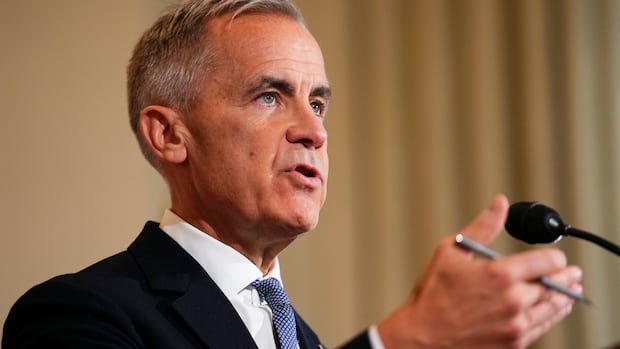Prime Minister Mark Carney, known for his affinity for Quebec musical talents Coeur de Pirate and Rock et Belles Oreilles during the last federal election, emphasized the importance of French in Canadian identity. However, recent data analysis by Radio-Canada shows that only a small portion of his speeches have been in French since taking office.
Out of the 59 speeches and news conferences analyzed by Radio-Canada from April 29 to September 14, Carney spent about 17% of his speaking time in French, with a lower proportion during international events. This contrasts with previous prime ministers who utilized French more extensively.
Official Languages Commissioner Raymond Théberge highlighted the significance of bilingualism for the prime minister as a symbol of Canada’s identity and linguistic equality. Experts noted a decline in French usage by Carney compared to his predecessors.
Former prime minister Stephen Harper and current Opposition Leader Pierre Poilievre have shown a stronger commitment to speaking French in public appearances. Criticism has arisen from figures like Bloc Québécois House leader Christine Normandin, emphasizing the importance of equal language representation.
Minister of Official Languages Steven Guilbeault defended Carney, noting efforts to improve French usage. The Prime Minister’s Office affirmed Carney’s commitment to addressing Canadians in both official languages.
Historically, bilingualism has been crucial for Canadian prime ministers, with an expectation to balance French and English communication. Experts urge Carney to set a higher standard in showcasing his commitment to both languages, especially for francophone communities outside Quebec.
The importance of French language representation and equality is emphasized, with calls for Carney to lead by example in promoting linguistic diversity. While current focus may be on economic concerns, failure to address language representation could impact the government’s standing with francophone voters in the future.


